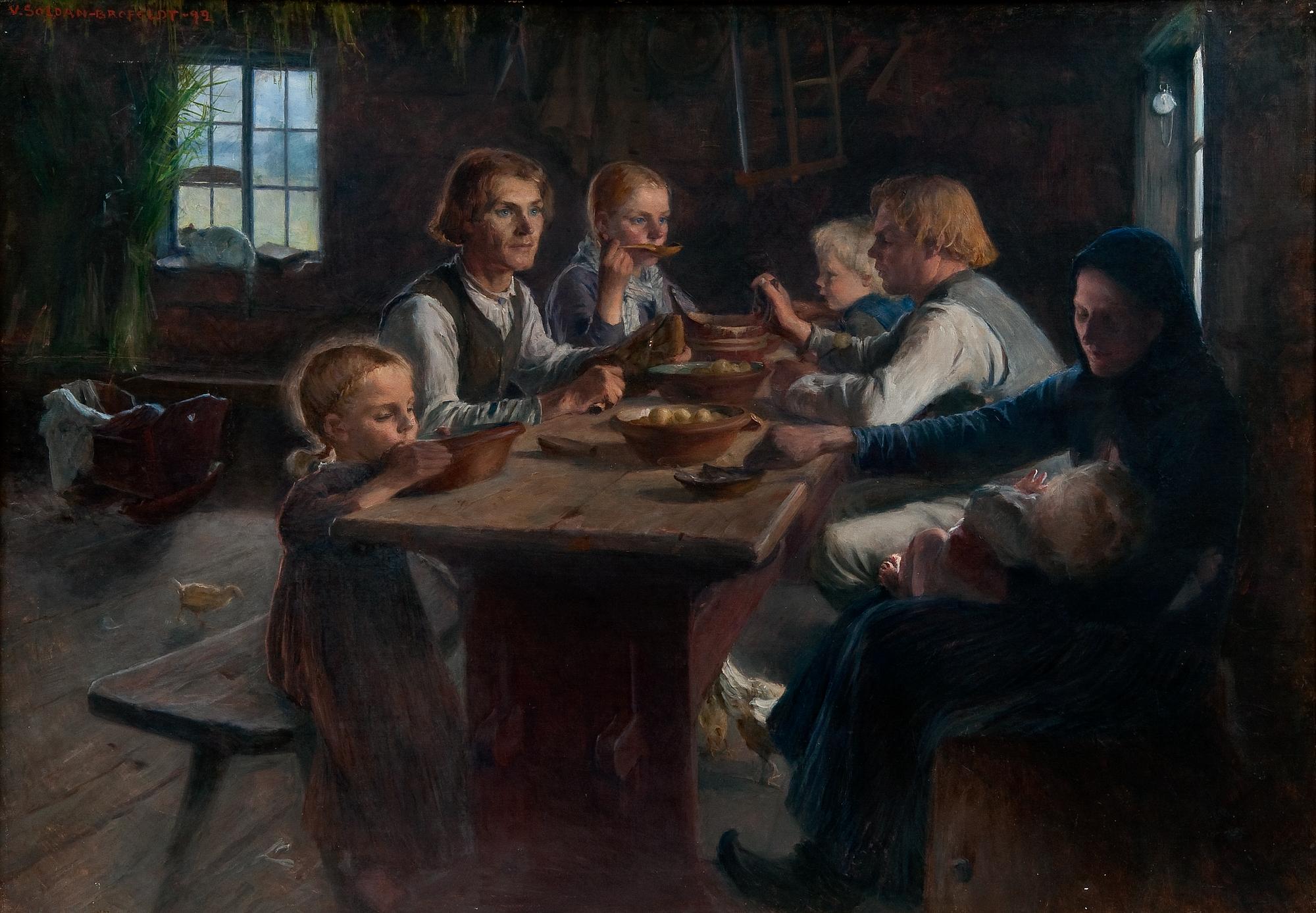Venny Soldan-Brofeldt
SUPPER AT A FINNISH FARMHOUSE.
Sign. -92. Oil on canvas, 96x135,5 cm.
Exhibitions
Ateneum, 1962. Joensuu Art Museum, 1987.
More information
VENNY
SOLDAN-BROFELDT
A FARMHOUSE IN SAVO, 1892.
During the 1890s Venny Soldan-Brofelt was one of the foremost
folkloristic painters in Finland. During this decade her
motifs were closely related to the interests of her husband, the
writer Juhani Aho. They were both particularly interested in
the revivalist movement in northern Savo and in Ostrobothnia.
This movement was one of the most influential revivalist movements
within the Lutheran church. Aho who had been raised
in a vicarage in Savo, had become acquainted with the revivalists
in his childhood home. There Venny Soldan-Brofelt first
came into contact with members of the movement. This motif
is repeated in three large oil paintings of which Farmhouse in
Savo ,from 1892, is the first. It is well-known how the painting
came into existence: 1892 was an important year for so called
karelianism in Finland. Inspired by the national epos Kalevala
many Finnish artists visited adjacent Karelia in search of their
roots. During the rainy summer of 1892, Venny Soldan-Brofelt
went on a “pilgrimage” to Karelia together with Juhani Aho
and their friend, the painter Eero Järnefelt. She never became
converted to karelianism, but during this trip she acquired a
deeper understanding of life in the Finnish countryside. When
she came back from Karelia Soldan-Brofelt spent the rest of
the summer and the autumn near Iisalmi, at Kusti Niskanen’s
house in the vicinity of Puustellinniemi on the shore of Lake
Haapajärvi. Here she painted A farmhouse in Savo and used
the inhabitants of the house as models. The Niskanen family
belonged to the revivalist movement and in the painting
Soldan-Brofelt has emphasized the holy nature of the meal by
surrounding the heads of the diners with a barely discernible
halo of light. At the same time the painting is a beautiful description
of rustic life. The work is realistic without being finicky.
Soldan- Brofelt used soft hues and the play of light and
shadows emphasizes the peace that reigns in the cottage.
In St. Petersburg, 1883-1884, Venny Soldan-Brofelt had, for the
first time, come into contact with international Art. At that
time she studied at the Stieglitz School of Drawing but she
also took private lessons in painting. It is not known who her
teacher was, but she wrote home that she dreamt of studying
painting under Ilja Repin. Although Soldan-Brofelt studied in
Paris during the late 1880s and thus came into contact with
French realism and naturalism, traces of Russian peredvižnik
realism can be seen in the way she has captured rustic life
in A farmhouse in Savo. This is noticeable both in the composition
and in the technique. The painting meant so much
to Soldan-Brofelt and to her contemporaries that she painted
another version of it (Riihimäki Art Museum, Tatjana and
Pentti Wähäjärvi’s collction). This work isn’t of quite the same
standard as the original painting.
Text Riitta Konttinen






























